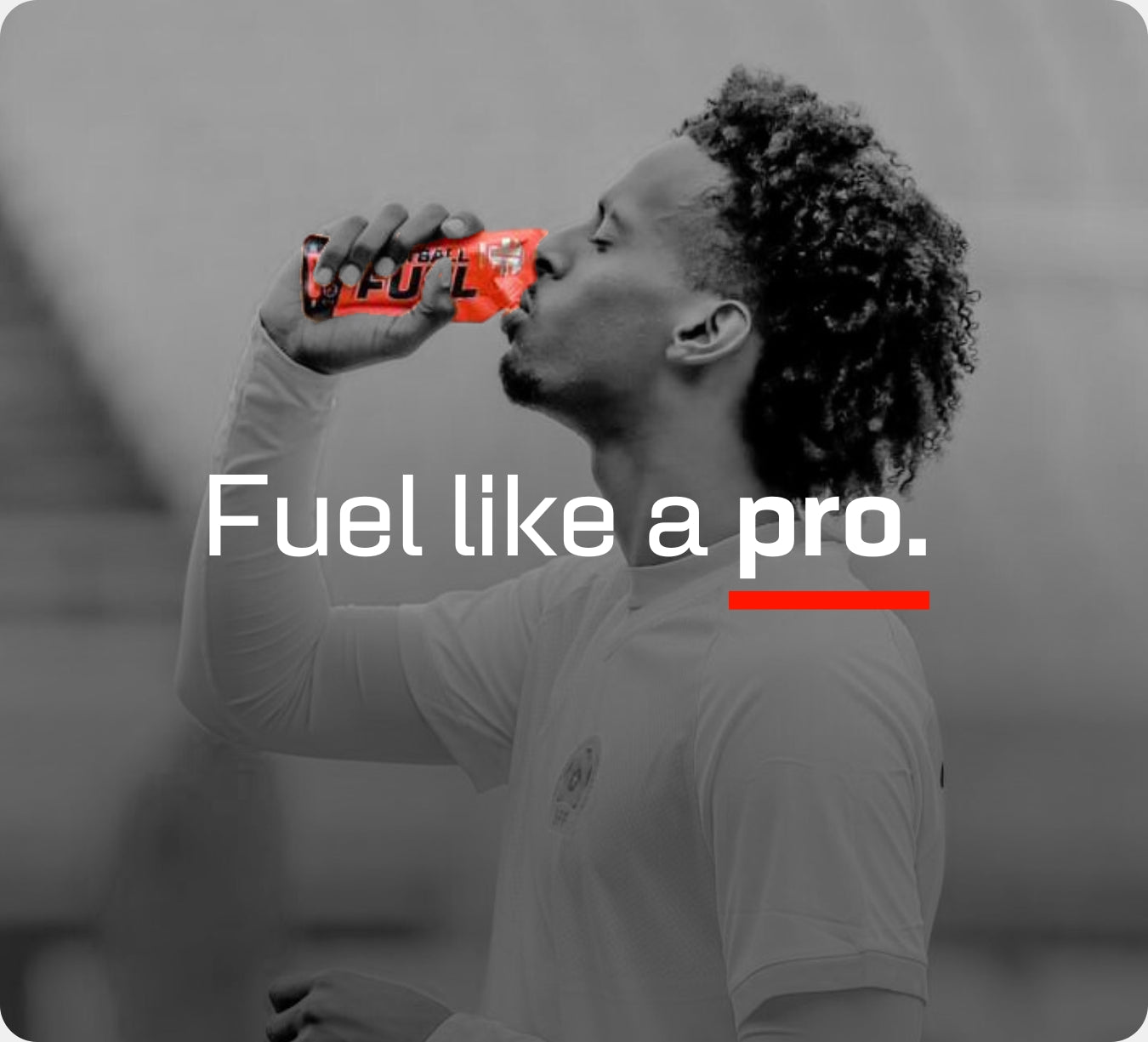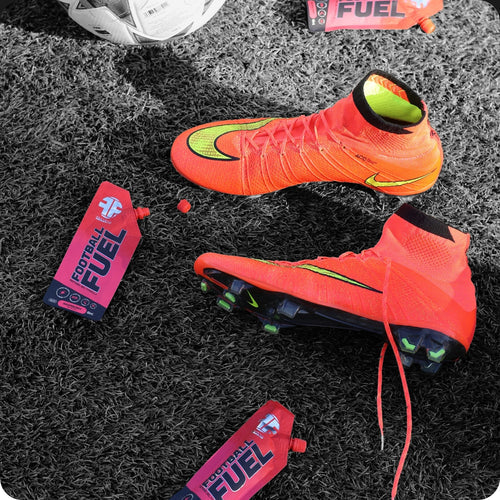Did you know?
40% of goals scored in football come in the final 20 minutes of a match? This critical period is often when players' energy levels begin to dip, making it challenging to maintain peak physical and mental performance. But why does this happen, and how can you combat it?
The Science Behind Late-Match Fatigue
Football is an intense, high-energy sport that requires rapid bursts of speed, sharp decision-making, and sustained physical effort. Throughout the match, your body relies on muscle glycogen — your primary fuel source — to power these movements. However, after 60 to 70 minutes of intense play, glycogen stores begin to deplete. This drop in energy directly correlates with the common dip in performance that occurs in the last 20 minutes of a game.
As glycogen levels decline, you may notice:
- Decreased stamina and endurance
- Weaker power output
- Slower decision-making and reaction times
- The feeling of "heavy legs"
This is also the time when players become more susceptible to conceding goals and making costly mistakes.
How to Refuel and Stay Strong
To avoid the dreaded late-game fatigue, it’s essential to fuel your body correctly throughout the day. Here are some key steps to follow:
-
Pre-Match Nutrition: Make sure you consume enough carbohydrates during the day leading up to the game. Your pre-match meal should be high in carbs to maximise glycogen storage.
-
Fuel up: Keep your energy levels up by taking an energy gel before or during halftime. This helps maintain glycogen levels and provides a quick source of carbohydrates.
-
Add a Boost with Caffeine: Caffeine gels can be a game-changer. Not only does caffeine help reduce the perception of fatigue, but it also sharpens focus, keeps you mentally alert, and boosts endurance for the final stretch.
Finish Strong and Outlast Your Opponents
With the right fuelling strategy, you can keep your energy levels stable, outlast your opponents, and make a decisive impact in the final 20 minutes of the match. By focusing on carbohydrate intake and considering the addition of a caffeine gel, you'll be able to maintain peak performance when it matters most.





